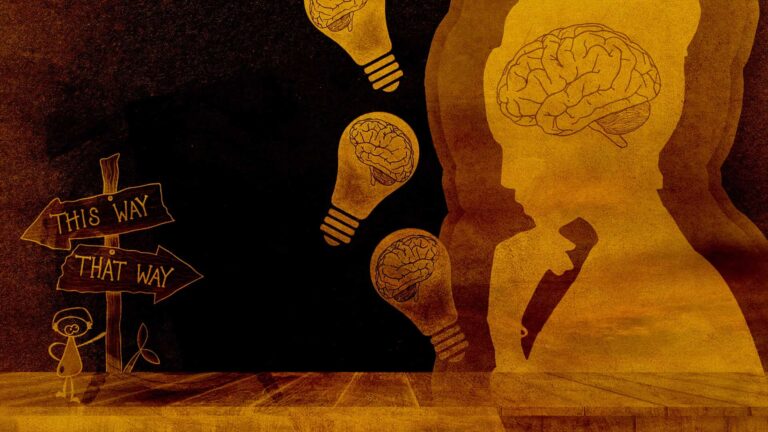OK – “whose” wisdom are we talking about? Yes, it is a specific source – God’s Wisdom.
When I saw this blog, I HAD TO read it. And now I MUST share it. It was just what I needed and maybe it is timely for you as well.
From Cheree Hayes & BibleProject Team came the following intro to their blog:
When we open the first pages of the Bible, we learn that God carved order out of chaos to create a space where life could flourish. As we keep reading, we reach the book of Proverbs where we meet wisdom personified as a woman, Lady Wisdom, who worked with God to create the universe (Proverbs 8:22-30). Everything God made with Lady Wisdom was good, and Lady Wisdom is still busy working today, expanding the goodness of creation and carving boundaries in our lives to limit chaos. But does her wisdom also limit our joy?
That caught my attention – “Is Lady Wisdom a Killjoy?” – good question. How many times have I said to myself, I “know” what is the wise thing to do, but ugh, I just can’t face doing it!
Kept reading the blog and I learned more. (is that wisdom seeping in?)
Luckily the blog shared that Wisdom’s counsel has been misunderstood since the beginning of time. To illustrate this, they used one of the biggest blocks in understanding we get from the first human story in Genesis – Adam and Eve.
God gave Adam and Eve the wise instruction not to eat from the tree of knowing good and bad because he knew it would kill them. What a great (and accurate) description! Plus the big point – if Adam and Eve had trusted God’s knowledge of good and bad, it would have kept them safe to enjoy all the good things He had made for them. Maybe you, like me, think we surely would not have made such a huge mistake as they did – then on second thought, I relent (after reviewing my history of decision-making — ugh).
But the point is excellent – it was about trust. Eve was deceived into doubting God’s motives so that influenced her perspective (or memory) of God’s instruction. She saw it as limiting her joy rather than preserving her well-being. She craved the fruit and “saw that it was good for food, a delight to the eyes, and that the tree was desirable to make one wise”. (Genesis 3:6)
What was the result of Adam and Eve eating the fruit? As the authors point out – fear, isolation, and death began reversing wisdom’s order and dragging creation back into chaos.
So the answer to “Is Lady Wisdom a Killjoy?” is then given – “no, just the opposite! She wants to save our joy from a deathly blow. Lady Wisdom is on our side. She’s been cheering us on since the beginning of time (Proverbs 8:30-31). She knows how to bring life and calls us to join her as she continues to multiply the goodness of God’s fruitful creation.”
OK – if that feels like a big jump – I am right there with you.
Yet the blog explains that we have short-sighted strategies that we need to resist (like, I want that delicious looking apple, now!) and move to join wisdom’s plans instead. Ha! Easy for them to say – I feel like I am living in the chaos way too often.
Next good question that was posed resonates with me: “How do we learn to trust Lady Wisdom?”
You can read the full blog, and I recommend that; but they point out that through the lens of Biblical authors, we discover God gives all humans the choice between trusting His wisdom or their own. It’s a repeated pattern in the Bible.
Great examples:
Abraham and Sarah were called to be fruitful & multiply – they were promised it would happen. Yet after years of waiting for a son, Sarah chose to act on her own understanding. She took her maid Hagar and gave her to Abraham in order to have a child conceived. It worked, but things only got worse after the child was born impacting relationships with blame, hatred and mistrust. (Genesis 16).
And more in the same story… after the above events, God gave Abraham and Sarah a son, Isaac, and the promise to bless all nations through his descendants (Genesis 17). A couple of chapters later, you can read how God tested Abraham by telling him to take Isaac and sacrifice him.
Love the blog’s response: “What’s going on here? We’re told by the author of Hebrews that Abraham was confident that God’s motives were trustworthy. Abraham reasoned that since God had promised his descendants would come through Isaac, somehow God’s command to sacrifice Isaac would not hinder the fulfillment of God’s original promise. Abraham believed God would provide a way, even if God had to raise Isaac from the dead. (Hebrews 11:17-19)
I must admit — I have wondered how I would have handled things had I been in Abrahams sandals. I shudder to think….
But the blog made this excellent summary:
These observations teach us that there are two ways to see and take. Eve saw a reality that seemed to contradict God’s instruction – so she took matters into her own hands against his counsel. But Abraham listened to God. He believed that God was leading him to life, even if that included a detour with death, so he took his most beloved son and followed God’s counsel.
I know these stories well yet I dread the point they are making when I consider applying this wisdom to my own life. And it is stated well by the authors of the blog:
Both perspectives were limited and both required trust in either God or in oneself. These options appeared deadly at one point, but only one way would lead to life. Jesus put it like this: “For whoever wants to save their life will lose it, but whoever loses their life for me will save it.” (Luke 9:24)
As the blog explains, Lady Wisdom is a personified picture of God’s infinite understanding. So true is their point: to be wise is to be in a trusting relationship with God. Jesus is the embodiment of wisdom. (1 Corinthians 1:30 and Colossians 2:2-3) And just like Lady Wisdom says, those who find Jesus find abundant life. (John 14:6; John 10:10)
“But all of this is hard to see when life is difficult and resources are scarce” – such a true statement in the blog. But not leaving us adrift, we are told that “to help us, Jesus gives us His very self.” The night before his crucifixion, he was focused on us – you and me – and then taking up a cross, he gave himself to us, leading to life.
The point made at the end of the blog says it well: “As we leave behind our own ways to follow Jesus, His wisdom leads us through every trial and into life. (James 1:2-16) Jesus gives us Himself. And the longer we walk with Him, the more we recognize that His wise company is the ultimate joy of life.”
My “call to action” for us all: examine what situations and relationships are feeling so difficult right now and dig into whether or not we are trusting our own ways or God’s wisdom. I’m right there with you!
[you can view the full blog and related video by clicking HERE]


